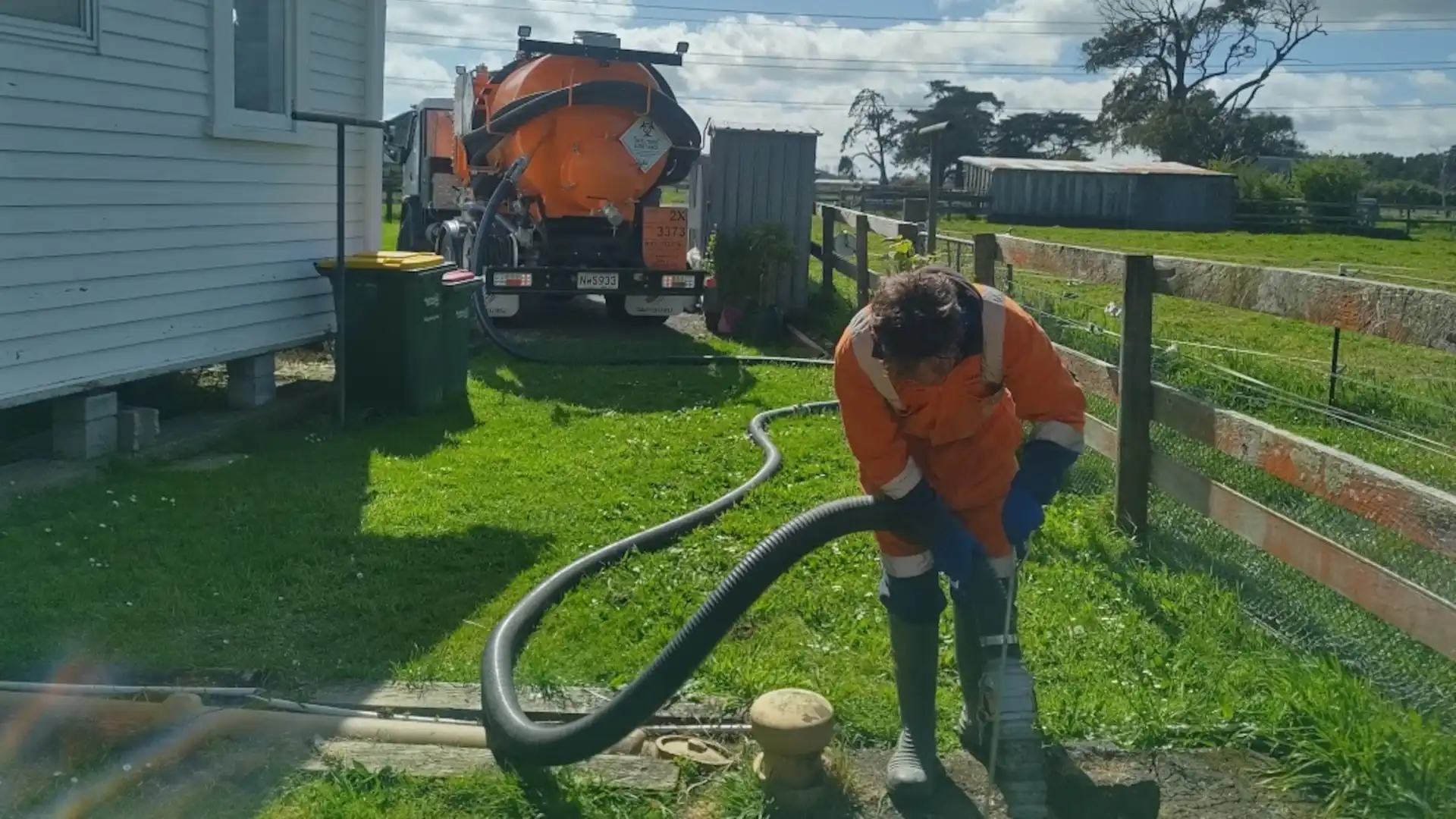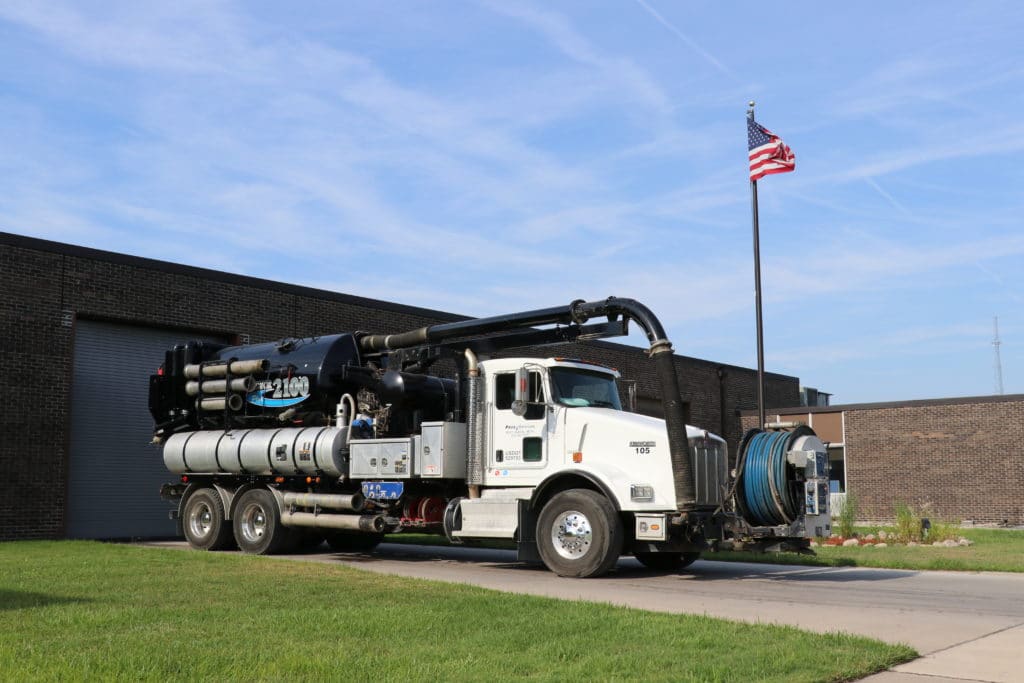Ingenious Industrial Wastewater Treatment Solutions: Protecting the Setting
Ingenious Industrial Wastewater Treatment Solutions: Protecting the Setting
Blog Article
Recognizing the Comprehensive Process of Liquid Waste Disposal: Best Practices and Environmental Impact Factors To Consider
The administration of liquid garbage disposal is a diverse concern that needs a complete understanding of numerous ideal practices and their associated ecological influences. From the sorts of fluid waste created to the approaches used for collection, treatment, and final disposal, each action plays a vital function in guarding ecosystems and public health. As governing criteria develop and innovation breakthroughs, the conversation around these processes becomes progressively pertinent. What ramifications do these changes hold for future sustainability initiatives, and how can stakeholders guarantee that they are appropriately dealt with?
Sorts Of Liquid Waste
Understanding the different sorts of fluid waste is vital for reliable monitoring and disposal methods. Fluid waste can be broadly categorized right into a number of kinds, each calling for unique handling and treatment strategies.
Industrial liquid waste typically has unsafe products, including heavy metals, solvents, and chemicals, produced throughout making processes. These wastes necessitate rigorous regulatory compliance to secure human health and the environment. Domestic fluid waste primarily refers to wastewater produced from houses, consisting of sewer and greywater, which, although much less harmful, can still present significant threats if poorly handled.
Agricultural liquid waste, including runoff from ranches, often includes fertilizers and pesticides that can result in environmental destruction otherwise dealt with appropriately. Clinical fluid waste, created from medical care centers, consists of infected fluids such as bodily liquids and chemicals, needing specialized disposal techniques to prevent infection and environmental contamination.
Lastly, oil and grease waste, generally produced by restaurants and vehicle markets, can trigger severe clogs in sewer systems if not taken care of effectively. Recognizing these categories helps with targeted techniques for therapy, conformity with laws, and reliable disposal techniques, ultimately advertising environmental sustainability and public health safety and security.

Collection Techniques
Effective collection methods are important for the proper monitoring of liquid waste, ensuring that it is gathered securely and efficiently prior to treatment or disposal. Different methods are employed depending upon the sort of liquid waste created, the volume, and the specific qualities of the waste.
One usual method is using specialized collection tanks or sumps, which are created to catch fluid waste at the resource. These systems typically integrate pumps that help with the transfer of waste to bigger storage containers or therapy facilities. In addition, mobile collection units furnished with vacuum cleaner modern technology are employed in situations where waste is produced intermittently or in hard-to-reach locations.
For commercial setups, closed-loop systems can efficiently lessen spills and leaks, permitting the healing and reuse of fluid waste. It is additionally vital to train workers on correct collection protocols to mitigate dangers associated with harmful compounds.
In addition, applying regular maintenance schedules for collection devices makes certain optimal performance and safety. The combination of advanced monitoring systems can improve collection effectiveness by supplying real-time information on waste degrees and possible hazards. In general, efficient collection approaches are fundamental to sustainable liquid waste monitoring techniques.
Therapy Processes
Therapy procedures play an important function in the administration of liquid waste, transforming potentially harmful products into safe effluents or recyclable sources - liquid waste disposal. These procedures can be generally classified right into physical, chemical, and biological methods, each tailored to deal with specific contaminants existing in the waste stream
Physical therapy techniques, such as sedimentation and purification, work by getting rid of find here suspended solids and particle issue. These methods are usually the initial step in the treatment chain, effectively reducing the lots on succeeding processes. Chemical treatments entail using reagents to neutralize harmful materials, precipitate hefty steels, or oxidize organic pollutants, therefore improving the safety of the effluent.
Biological treatment processes, consisting of activated sludge systems and anaerobic digestion, take advantage of the natural capabilities of microbes to weaken raw material. These techniques are specifically reliable for wastewater including biodegradable toxins. Advanced therapy modern technologies, such as membrane purification and advanced oxidation processes, are progressively employed to accomplish greater levels of filtration.
Integrating a combination of these treatment techniques not just makes certain conformity with governing standards however additionally promotes ecological sustainability by recuperating useful resources from fluid waste.
Disposal Options
Just how can companies guarantee the liable and risk-free disposal of fluid waste? Effective disposal alternatives are important for securing public health and wellness and the setting. The primary techniques include land incineration, therapy, and disposal adhered to by discharge right into local wastewater systems.
Land disposal includes the cautious containment of fluid waste in assigned garbage dumps, making sure that it does not leach into surrounding soil or water. Incineration, on the other hand, topics fluid waste to high temperature levels, converting it right into ash and gases, which call for proper filtration to minimize emissions. This approach appropriates for hazardous wastes that can not be dealt with via typical methods.
In instances where liquid waste can be treated, organizations might opt for chemical or biological therapy procedures to reduce the effects of unsafe components before releasing the treated effluent into municipal systems. This course commonly lines up with regulatory requirements, ensuring that the effluent fulfills security standards.
Eventually, companies should perform detailed evaluations of each disposal choice to determine its stability, thinking about factors such as waste structure, regulative conformity, and prospective risks to health and wellness and the environment. By choosing ideal disposal approaches, companies can add to an accountable waste management method.
Environmental Effect
The ecological impact of liquid waste disposal is a critical consideration for organizations looking for to decrease their ecological footprint. Additionally, the discharge of unattended or improperly dealt with waste right into surface area review waters can result in eutrophication, leading to oxygen exhaustion and the subsequent death of fish and other organisms.

To alleviate these influences, companies need to embrace finest methods such as carrying out extensive waste treatment processes, advertising recycling and reuse, and sticking to governing criteria. By taking a positive method to liquid waste monitoring, entities can considerably reduce their ecological impact while supporting sustainable development objectives. Eventually, an extensive understanding of the ecological influences connected with fluid waste disposal is essential for educated decision-making and accountable stewardship of all-natural sources.
Verdict
Reliable management of fluid waste is important for guarding environmental stability and public health. Ultimately, a comprehensive understanding of liquid waste disposal not just minimizes environmental effects yet also fosters a commitment to liable source management and environmental stewardship.
The administration of liquid waste disposal is a complex concern that requires a complete understanding of numerous best methods and their connected ecological influences. From the kinds of fluid waste created to the methods employed for collection, treatment, and final disposal, each action plays an important function in securing ecological communities and public health.The environmental influence of fluid waste disposal is a crucial factor to consider for companies seeking to decrease their environmental footprint. Eventually, a thorough understanding of the ecological effects associated with liquid waste disposal is important for informed decision-making and accountable stewardship of natural sources.
Inevitably, a thorough understanding of liquid waste disposal not just mitigates environmental impacts but additionally promotes a commitment to responsible source monitoring click here for info and ecological stewardship.
Report this page